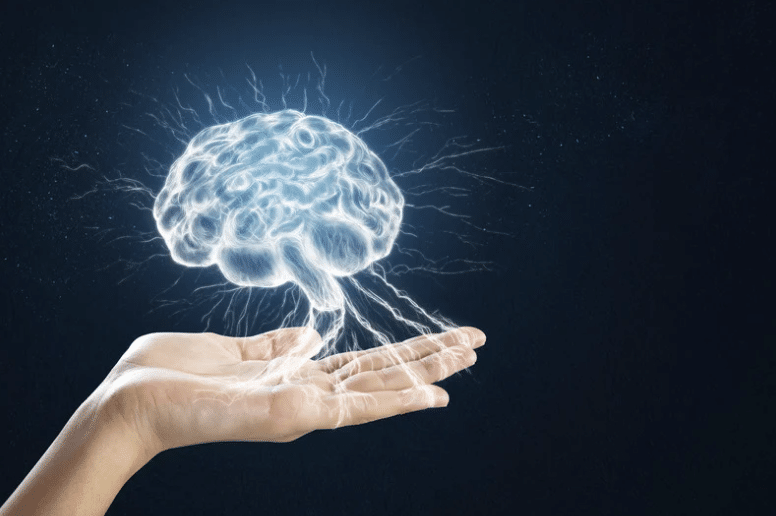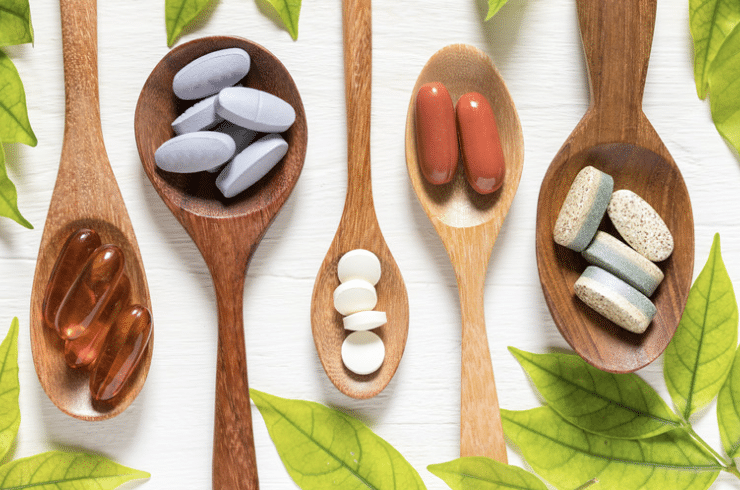Your liver and kidneys typically get all the credit when it comes to detoxification, but did you know that your body has another extensive system in place to detoxify your brain? If you’re wondering what a “brain detox” is or asking, “How can I clean my brain?” — we’ve got you covered!
What Is A Brain Detox?

A brain detox, or cleanse, helps protect against neurodegenerative diseases and decreases symptoms related to poor brain function. It often targets issues like:
- Fatigue
- Brain fog
- Anxiety
- Depression
- Memory loss
- Brain injury and stroke
- Addictions
Functional Medicine treats chronic disease at its root cause while considering the whole patient’s history to restore wellness. When undertaking a brain detox, doctors often recommend prioritizing sleep, adopting an anti-inflammatory diet, exercising, and using supplements that support brain health. It’s essential to consult your doctor before starting any detox, especially if you have preexisting health conditions like liver or kidney disease, diabetes, or Alzheimer’s disease.
Working with a Functional Medicine Certified Health Coach can help you set realistic goals and stay on track while trying a detox.
What Does a Brain Detox Look Like?
1. Prioritize Sleep
Sleep is essential for cognitive health. It supports the glymphatic system, which removes toxins like beta-amyloid, a protein associated with Alzheimer’s disease.
Sleep deprivation can lead to poor decision-making, fatigue, and increased cravings for junk food.
Sleep has a role in our decision-making. Not getting enough sleep can increase our preference for junk food and lead to making poor decisions. Getting enough sleep each night is one of the best ways to support your brain’s natural detoxification processes.
Most adults need about seven to nine hours of sleep per night to operate at their best. Here are some tips for helping you get the best sleep you can:
- Your circadian rhythm controls your energy, motivation, appetite, and more! Learn to regulate your circadian rhythm by going to bed at the same time every day.
- Read something relaxing to calm your mind.
- Establish a bedtime routine that is calming, such as taking a warm shower, stretching, lighting candles, etc.
- Exercise during the day to help you sleep better at night. Try mindful meditation or yoga in the evening to help you relax.
- Sleep in a dark and cool room.
- Boost your Vitamin D levels by spending time outdoors each day in the sun and in nature, which is beneficial for boosting relaxation and controlling stress.

2. Adopt an Anti-Inflammatory Diet
Diet plays an important role in managing your cognitive health and your gut-brain connection. Gut-related and intestinal problems can increase inflammation, which can affect how well your organs work, including your brain. This can contribute to issues such as depression, fatigue, anxiety, and lack of concentration/focus. Health coaches can help clients adhere to a healthy, anti-inflammatory diet.

Your brain needs a steady supply of nutrients to feel its best. This includes protein, healthy fats, antioxidants, omega-3 fatty acids, and essential vitamins and minerals. These “brain foods” have been found to fight free radical damage and boost your nutrient intake:
- Fruits and vegetables high in bioflavonoids, such as leafy greens, beets, broccoli, bell peppers, berries, and oranges
- Herbs and spices, such as ginger, turmeric, garlic, rosemary
- Fermented, probiotic foods like yogurt, kefir, kimchi, and sauerkraut
- Nuts and seeds
- Legumes and beans
- Complex carbs like whole grains and sweet potatoes
- Grass-fed meats
- Wild-caught fish
- Pastured poultry and free-range eggs
- Foods high in copper, vitamin C, and manganese, such as citrus fruits, berries, leafy greens, mushrooms, organ meats, spirulina, and algae
- Healthy fats, such as avocados, olive oil, coconut oil, and grass-fed butter
In addition to eating a diet that includes lots of foods with anti-inflammatory, antioxidant, and anti-carcinogenic effects, you want to avoid foods that can aggravate inflammation, autoimmune reactions, and oxidative stress. These might include processed meats, foods with processed vegetable oils and trans fats, added sugar, and highly processed foods in general. You will also want to drink water throughout the day to stay hydrated, which is important for supporting your lymphatic system.
3. Exercise Regularly
There’s some evidence suggesting that exercise may increase glymphatic activity and also improve brain plasticity, which plays a role in learning and memory. Additionally, exercise can help you cope with stress, sleep more deeply, and have more energy in general.
Most adults should aim for at least 30 minutes of moderate exercise each day, which can be divided into shorter sessions. Workouts that increase blood flow to the brain have been found to support the mitochondrial function and potentially keep dementia at bay.
You can keep things interesting and challenge your body with different workouts such as running, resistance training, walking, cycling, swimming, yoga, Pilates, etc. Studies show that health coaches play a key role in helping clients incorporate exercise into their lives in a realistic and sustainable way

4. Minimize Toxin Exposure

While avoiding all chemicals and toxins may not be realistic, try to reduce exposure to contaminants as much as you can. Purchasing organic foods and using organic beauty and household products whenever possible limits the amount of pesticides, herbicides, and other chemicals you put around your body.
5. Support Detoxification with Supplements
You can help support your body’s natural ability to detox by taking certain nootropics, adaptogenic herbs, and supplements that nourish the liver, kidneys, gut, and brain such as:
- Milk thistle for liver support
- Medicinal mushrooms for general immune support
- NAD+ for mitochondrial support
- L-glutamine for gastrointestinal support
- Vitamin C for antioxidant support
- Green tea extract for a boost in energy and antioxidant effects
- Probiotics for gut support and maintaining a healthy microbiome
Always ensure to consult your doctor before starting any supplement regimes.

6. Limit Technology Use

Our modern digital media has become amazingly adept at capturing our time and attention. We find ourselves losing hours of our day so easily to mindless scrolling, which has been shown to produce more stress and anxiety. Limiting your phone time has proven to help boost productivity and mental clarity throughout the day. Instead of grabbing your phone first thing in the morning, try going about your morning routine first. When spending time with loved ones, leave your phone in the other room, so you won’t be tempted to look at it. During work hours, if you don’t need your phone, try keeping it somewhere safely out of sight.
7. Spend Time in Nature
To some, spending time in nature can seem unproductive compared to extra hours in the office or at home, but in reality, nature gives you a leg up—on creativity, on managing your stress levels, and by providing a stabilizing influence on a frazzled brain. Nature is the counterbalance to our hectic lives and helps detox our brains.
Taking a 10-20 minute break in your day to sit in nature without any distractions from your phone can help reframe and reset your mindset for a more productive rest of your day. No time for a break? Take the meeting outside for a walk. CEOs that implemented outdoor walking meetings discovered that the conversations are more candid with minimized distractions, creating more opportunities for new ideas!

8. Expand Relationships
Interpersonal connections with those we know and others outside our social circle are a powerful way to improve your brain, as well as the general quality of your health and your life. In a study from the University of Chicago, researchers had participants either talk to strangers on trains and buses or refrain from interaction. The people who spoke to strangers reported more positive experiences!

Detoxing can be an effective way to reset your body and mind, but it’s essential to make informed decisions under the guidance of your doctor. With the support and expertise of Functional Medicine health coaches, you’ll have the guidance, tools, and resources to confidently navigate your journey toward optimal health.
Want to learn more about Functional Medicine Health Coaching? Check out our page What is Functional Medicine Health Coaching?
Resources and Further Reading
- Exercise training increases size of hippocampus and improves memory
- A Paravascular Pathway Facilitates CSF Flow Through the Brain Parenchyma and the Clearance of Interstitial Solutes, Including Amyloid β
- Vitamin D Deficiency
- The cognitive benefits of interacting with nature
- Associations between screen time and lower psychological well-being among children and adolescents: Evidence from a population-based study
- The Good Life: A Discussion with Dr. Robert Waldinger
- On What The Func?! podcast, Austin Perlmutter, MD, internal medicine physician and co-author of the New York Times bestseller Brain Wash: Detox Your Mind, shared how to optimize decision-making and truly detox your brain!
Our Latest Blogs
-

DNA Testing & Health Coaching: How Genetic Insights Enhance Personalized Wellness
Read Full Article: DNA Testing & Health Coaching: How Genetic Insights Enhance Personalized Wellness -

Practitioner vs Health Coach: What’s the Difference?
Read Full Article: Practitioner vs Health Coach: What’s the Difference? -

International Alumni Spotlight: David Staunton
Read Full Article: International Alumni Spotlight: David Staunton

